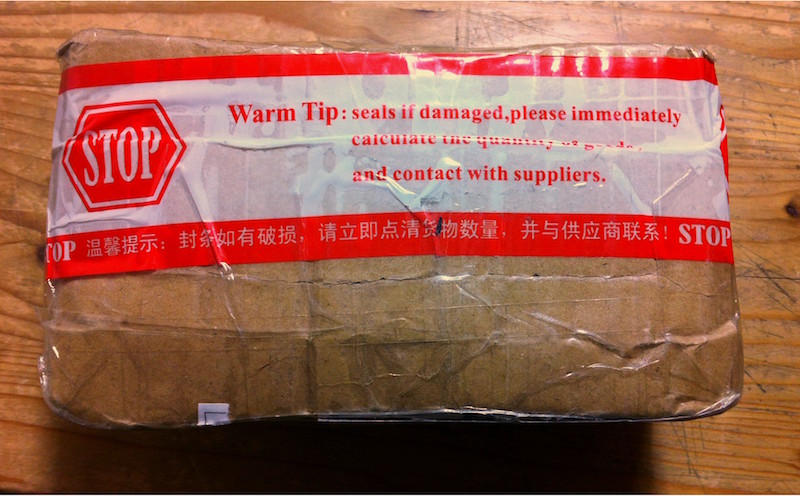Warm tip
« previous post | next post »
Jan Söhlke received a fresh batch of Tieguanyin from China. The tea helps him get through the dark and cold season, this time the more so as it came with a »warm tip«:
Jan remarks:
Don't know if either that or the »calculation« of goods is interesting for you. I found both a bit odd, but my ears are of course those of a non native. In German there is the practice of recommending things »most warmly« (»wärmstens empfehlen«), but I haven't come across warm tips in English before.
We have encountered the Chinese expression that is behind "warm tip" before. It is:
Wēnxīn tíshì 溫馨提示 ("gentle reminder")
See:
- "Beginning of the Semester Blues" (9/5/10)
- "Warm Notice" (5/27/14)
I will not transcribe and retranslate the rest of the English, since it actually fairly accurately conveys the sense of Chinese sentence. If readers of the English sentence have difficulty understanding what it means, it's probably because the Chinese itself might not make sense to them even if they could read it directly. Perhaps the problem stems from the fact that this sentence seems to be concerned with the loss of goods, whereas, when I see a notice about a seal being broken, I'm not nearly so concerned about the loss of a certain portion of the goods as I am about adulteration. I suspect that the same is true of most other Westerners.

Charles Antaki said,
January 23, 2016 @ 4:05 pm
This is off the main topic, so apologies. But I was struck by the worry about adulteration. I must say that that would never have occurred to me. Things falling out or being pilfered, certainly, but contamination or adulteration – not at all. Perhaps in the UK we're more used to our parcels being mangled than being interfered with…
Bruce Rusk said,
January 23, 2016 @ 8:50 pm
I imagined from the title that a "warm tip" would be a lesser version of a "hot tip": insider knowledge that a particular stock will rise slowly over the course of several months, for example.